Sustainable Data

How can climate data analysis inform sustainable development goals and practices ?
**Summary:** Climate data analysis is crucial for understanding environmental systems and shaping sustainable development goals (SDGs) and practices. It helps identify trends, inform policy decisions, assess environmental impacts, and guide sustainable agriculture, urban planning, and disaster risk reduction. By integrating climate data into development frameworks, we can ensure that current actions do not compromise future generations' ability to meet their needs and aspirations.

How can climate information sharing contribute to sustainable development goals ?
**How Can Climate Information Sharing Contribute to Sustainable Development Goals?** Climate information sharing plays a crucial role in achieving sustainable development goals (SDGs). This article discusses the various ways in which climate data can contribute to environmental sustainability, social equity, and economic growth. Key points include: 1. **Improving Resilience to Climate Change**: Early warning systems, adaptation planning, and infrastructure development are all enhanced by shared climate information. 2. **Supporting Sustainable Agriculture**: Farmers can use climate data for crop planning, water management, and pest and disease control. 3. **Promoting Clean Energy Solutions**: Climate information aids in renewable energy site selection, energy efficiency, and demand forecasting. 4. **Enhancing Biodiversity Conservation**: Habitat protection, species survival, and ecosystem services are all influenced by climate trends. 5. **Advancing Gender Equality**: Providing women with climate information can empower them and reduce their vulnerabilities during climate-related disasters. 6. **Fostering Partnerships for Sustainable Development**: Multi-stakeholder engagement, international cooperation, and public-private partnerships are all facilitated by climate information sharing. In conclusion, ensuring that stakeholders have access to accurate and timely climate data is essential for making progress towards a more sustainable future.
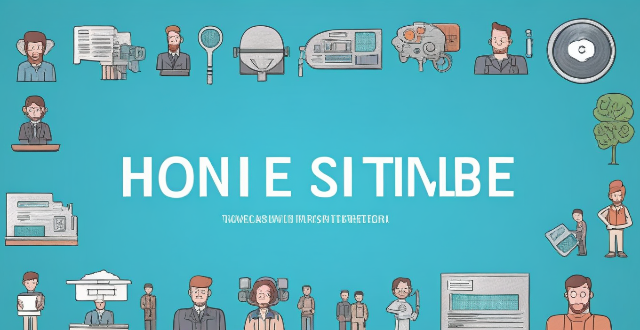
How can we ensure that the benefits of sustainable development reach everyone, including the most vulnerable groups ?
The text discusses how sustainable development can be ensured to reach everyone, including the most vulnerable groups. It suggests a multifaceted approach that involves balancing economic growth, social inclusion, and environmental protection. The strategies include developing inclusive policies, ensuring access to opportunities like education and training, investing in sustainable infrastructure and accessible services, encouraging community engagement and advocacy, and implementing monitoring and accountability measures. By working together across sectors and levels of society, a more equitable and sustainable future can be built for all.

What are the best practices for sustainable groundwater management ?
The provided text discusses the importance of sustainable groundwater management and outlines several best practices to ensure the long-term availability and quality of this vital resource. These practices include monitoring and data collection, enhancing recharge, maintaining sustainable withdrawal rates, protecting groundwater from pollution, integrated water resources management, legal and policy framework, public participation and education, technological innovation, and responding to climate change. By following these guidelines, depletion, contamination, and environmental damage can be prevented, supporting ecosystems, agriculture, and human consumption.

What is data privacy ?
Data privacy is the protection of personal information from unauthorized use. It's important for individual rights, building trust, legal compliance, and risk mitigation. Principles include data minimization, anonymization, encryption, transparency, consent, access control, retention, integrity, and accountability. Best practices involve regular audits, employee training, updating policies, secure systems, and response plans for data breaches.

How can climate services contribute to sustainable development ?
Climate services contribute to sustainable development by providing essential information for decision-making in various sectors. They help inform policy decisions, support agriculture and food security, enhance natural resource management, promote energy efficiency and renewable energy, improve public health outcomes, and encourage resilience and adaptation. By utilizing the insights gained from climate services, we can work towards a more resilient, equitable, and sustainable future.

How can we measure progress towards achieving the Sustainable Development Goals ?
The text discusses the importance of measuring progress towards achieving the Sustainable Development Goals (SDGs) set by the United Nations in 2015. It outlines seven key steps to effectively monitor and evaluate this progress: establishing baseline data, tracking specific indicators, reporting and reviewing progress, utilizing technology, engaging stakeholders, addressing data gaps, and ensuring transparency and accountability. Each step includes a detailed explanation of methods and strategies to implement it successfully. The goal is to provide a structured approach for countries and organizations to assess their performance in meeting the ambitious objectives aimed at tackling global challenges such as poverty, inequality, and environmental degradation.
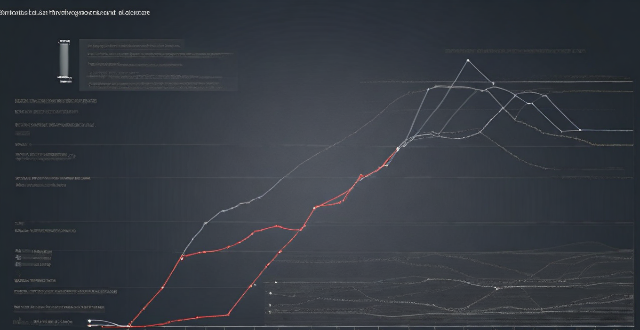
What is the importance of long-term climate data analysis ?
Long-term climate data analysis is crucial for understanding the Earth's climate system and its changes over time. It provides valuable insights into past climate patterns and trends, which are critical for predicting future climate conditions and developing effective adaptation strategies. By continuing to collect and analyze long-term climate data, we can better prepare ourselves for the challenges posed by a changing climate and work towards a sustainable future.

How does data encryption affect computer performance ?
Data encryption is crucial for securing data but can affect computer performance by increasing processor load, memory usage, disk I/O, network latency, and reducing battery life.
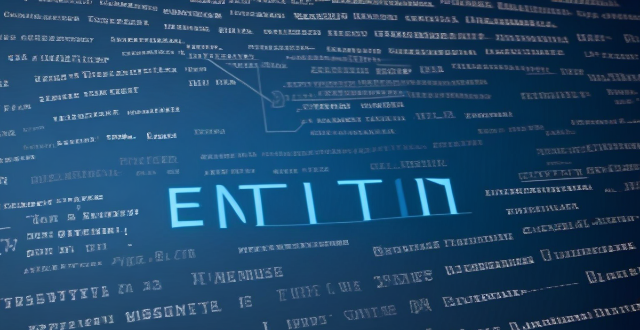
Why is data encryption important for online security ?
Data encryption is crucial for online security, protecting dataData encryption is crucial for online security, protecting data the financial impact of breaches It has evolved from ancient uses to a critical tool in today's digital landscape, with AI optimizing key management and enhancing algorithms.

How can technology help us achieve the Sustainable Development Goals ?
Technology can significantly contribute to achieving the Sustainable Development Goals (SDGs) by offering innovative solutions to pressing global challenges. Here's a breakdown of how tech can aid in reaching these goals: 1. **No Poverty**: Digital financial services and e-commerce platforms can reduce poverty by providing access to financial services and global markets, respectively. 2. **Zero Hunger**: Precision agriculture and food delivery apps can increase food production and reduce waste, thereby combating hunger. 3. **Good Health and Well-Being**: Telemedicine and wearable devices can improve healthcare access and personal health monitoring. 4. **Quality Education**: Online learning platforms and augmented reality can provide equal educational opportunities and enhance learning experiences. 5. **Gender Equality**: Women's empowerment apps and online entrepreneurial platforms can promote gender equality and economic empowerment. 6. **Decent Work and Economic Growth**: Remote work technologies and skill development platforms can create job opportunities and enhance employability. 7. **Industry, Innovation, and Infrastructure**: Smart manufacturing and renewable energy technologies can drive industrial efficiency and sustainable infrastructure. 8. **Reduced Inequalities**: Data analytics and social media can help identify and address inequality, promoting social change. By harnessing technology, we can move closer to a more sustainable, prosperous, and equitable future for all.
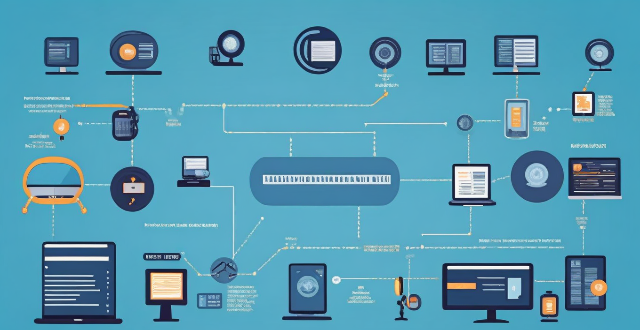
What are the benefits of having an unlimited data plan ?
An unlimited data plan offers benefits such as no data caps or overage charges, the ability to stream videos and music without worrying about data usage, using multiple devices simultaneously, working from anywhere, enjoying online gaming and social media, and better value for money.
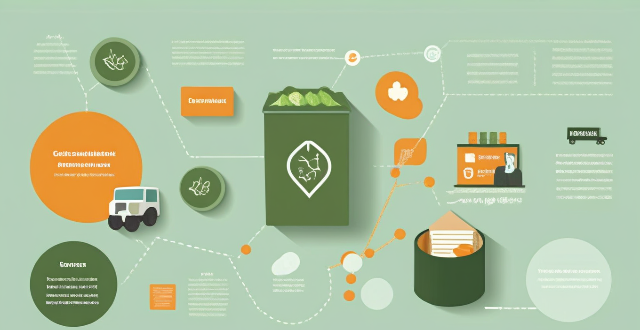
How can businesses contribute to sustainable consumption ?
Businesses can contribute to sustainable consumption by adopting circular economy principles, managing green supply chains, using eco-friendly packaging, practicing product stewardship, improving energy efficiency, conserving water, engaging in responsible marketing, promoting innovation, engaging stakeholders, and supporting environmental initiatives. These practices help reduce waste, minimize resource use, and inspire sustainable consumer behavior.

How do data protection regulations handle sensitive personal data ?
Handling sensitive personal data under data protection regulations requires strict adherence to principles such as consent, minimization, purpose limitation, and security. Regulations like the GDPR in the EU, CCPA in the US, and PIPEDA in Canada impose specific conditions for processing sensitive information. Organizations must adopt best practices including assessment, privacy impact assessments, employee training, access controls, and monitoring to ensure compliance and protect individuals' privacy rights.
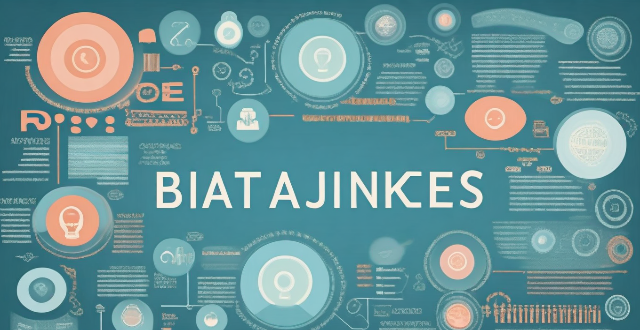
What is the difference between data privacy and data protection ?
The text discusses the difference between data privacy and data protection, emphasizing that understanding these concepts is crucial for managing personal information responsibly. Data privacy focuses on individual rights to control personal information, while data protection emphasizes organizational measures to safeguard that information. Both are essential for building trust and ensuring responsible data handling.

What are the main sources of sustainable energy ?
The text discusses the various main sources of sustainable energy, including solar energy, wind energy, hydropower, geothermal energy, bioenergy, tidal and wave energy, and hydrogen energy. It also highlights the importance of adopting sustainable energy for environmental impact, economic benefits, energy security, and health considerations. The transition to sustainable energy requires investment, policy support, and technological innovation.

What role do data protection officers play under data protection laws ?
Data protection officers (DPOs) are crucial for ensuring compliance with data protection laws in organizations. They advise on compliance, develop policies, ensure adherence to regulations, educate stakeholders, and act as a point of contact for personal data requests.
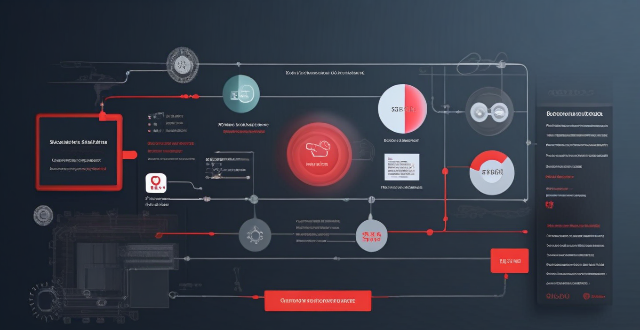
Can data encryption prevent data breaches and cyber attacks ?
Data encryption is a crucial security measure that can significantly reduce the risk of data breaches and cyber attacks by converting plain text into an unreadable format. However, it does not completely eliminate the risk of data breaches and cyber attacks. Encryption works through complex algorithms to scramble data so that it appears as random characters, requiring a secret key (or password) to decrypt the data back into its original form. There are two main types of encryption: symmetric and asymmetric. While encryption offers benefits such as confidentiality, integrity, authentication, and non-repudiation, it also has limitations including key management challenges, performance overhead, compatibility issues, human error, and advanced persistent threats (APTs). Therefore, organizations should implement other security measures such as firewalls, intrusion detection systems, regular security audits, and employee training programs to minimize the risk of cyber threats.
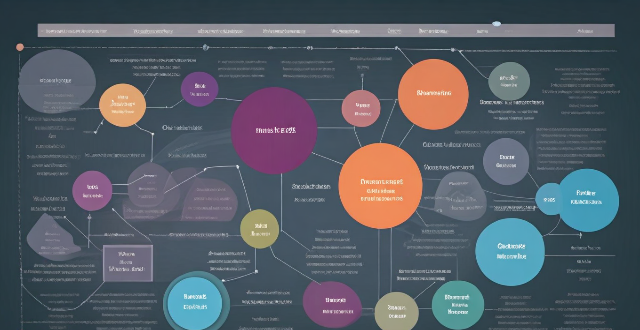
How do unlimited data plans differ from traditional data plans ?
Data plans are essential for internet usage, with unlimited and traditional data plans being the main types. Unlimited plans offer no data limits, predictable costs, and suit heavy users, while traditional plans have data limits, variable costs, and suit light users. The key differences include data limits, cost, and usage scenarios. Choosing the right plan depends on individual needs and usage patterns.

How does sustainable consumption impact the economy ?
Reduced resource depletion, lower energy costs, increased innovation, and improved public health are some of the key benefits of sustainable consumption. While there may be short-term costs associated with transitioning to more sustainable practices, the long-term benefits far outweigh these costs.

What is data encryption and how does it work ?
Data encryption is a crucial cybersecurity measure that transforms plaintext into ciphertext, protecting it from unauthorized access. It involves the use of complex algorithms and secret decryption keys. Encryption is significant for securing data at rest, in transit, and during processing, helping meet compliance requirements and reducing financial risks associated with data breaches. Its evolution includes historical precursors and wartime innovations, with AI expected to enhance its capabilities in the future.

What happens to my data during an iPhone repair ?
When you send your iPhone for repair, the repair center will take several steps to protect your data, including diagnostics, backup, data protection, testing, verification, and return of your device.

How can sustainable investing help achieve the United Nations Sustainable Development Goals ?
Sustainable investing, which incorporates environmental, social, and governance criteria into investment decision-making, can significantly contribute to achieving the United Nations Sustainable Development Goals. It promotes environmentally friendly practices, enhances social well-being, advances economic growth and innovation, upholds good governance and partnerships, drives market trends towards sustainability, and attracts conscience-driven consumers. By aligning financial objectives with positive societal impact, sustainable investing creates a framework for long-term, sustainable growth that benefits people, planet, and profit.

What are the rules regarding data breaches under data protection regulations ?
Data protection regulations have been established to ensure the confidentiality, integrity, and availability of personal data. These regulations set out specific rules regarding data breaches that must be followed by organizations that handle personal data. The key rules regarding data breaches under data protection regulations include notification of data breaches, mitigating their impact, record-keeping and reporting, penalties for non-compliance, and best practices for preventing data breaches. By adhering to these rules and implementing best practices, organizations can reduce the risk of data breaches and protect individuals' personal data.
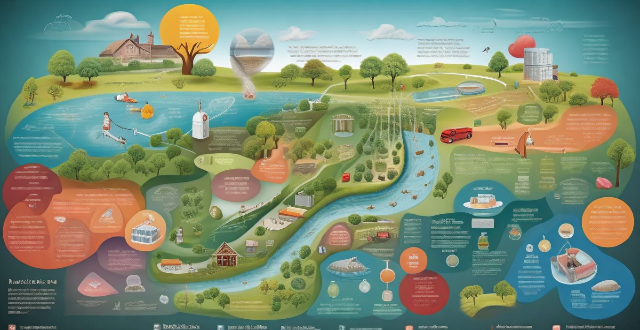
How does climate data analysis aid in understanding the impact of human activities on the environment ?
Climate data analysis aids in understanding the impact of human activities on the environment by identifying climate change indicators, analyzing atmospheric composition, monitoring land use changes, assessing water resources, and evaluating energy consumption. By collecting and analyzing various types of climate data, scientists can identify patterns and trends that help them understand how human activities are affecting the planet. This information is critical for developing strategies to mitigate the negative impacts of human activities on the environment and promote sustainable development.

How do we analyze the data collected from environmental monitoring ?
Analyzing data from environmental monitoring involves several steps, including data cleaning, descriptive analysis, inferential statistics, time series and spatial analyses, multivariate techniques, and reporting findings. These steps help understand the current state of the environment and identify potential issues.
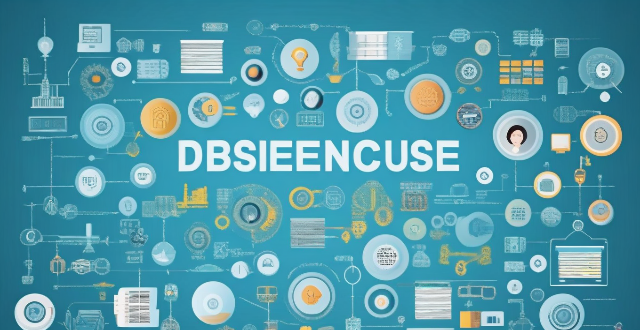
What are the consequences of a data breach ?
This text discusses the consequences of a data breach, including financial losses, loss of trust, reputation damage, and regulatory fines. It also highlights the long-term impact on business, legal implications, and personal impact such as identity theft and emotional distress. The text suggests mitigating measures such as implementing strong security measures, training employees, having a response plan, regularly updating systems, limiting access to sensitive data, backing up data, and insuring against data breaches.

Why is data privacy important ?
Data privacy is crucial in the digital age, protecting individuals and benefiting organizations. It ensures control over personal information, prevents misuse, and builds trust. Organizations mitigate risks, gain customer loyalty, and comply with laws by prioritizing data privacy. Key principles include transparency, individual control, data minimization, and security measures. Data privacy will continue to shape the relationship between individuals and technology, balancing innovation and privacy rights.
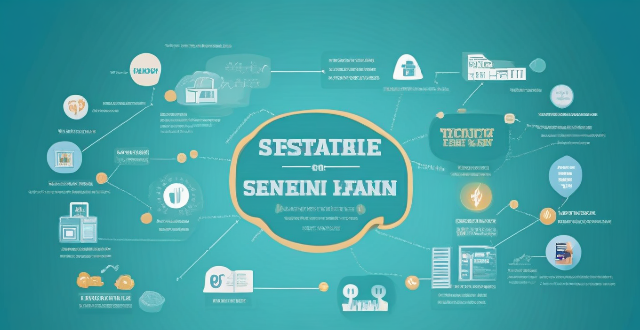
How do I choose a sustainable investment fund ?
Choosing a sustainable investment fund requires careful consideration of various factors, including your investment goals, the fund's ESG criteria and performance history, the experience of the fund manager, the fund's holdings and alignment with your values, fees and expenses, and ongoing monitoring of your investment. By following these steps, you can select a sustainable fund that aligns with your financial goals and personal values.

Can you explain the concept of 'data minimization' in data protection laws ?
Data minimization is a crucial principle in data protection laws that requires organizations to collect and process only the minimum amount of personal data necessary for specified, explicit, and legitimate purposes. This concept aims to protect individuals' privacy by limiting the potential harm that can result from the misuse or breach of their personal information. Key aspects of data minimization include collection limitation, purpose specification, data retention, data security, and accountability and transparency. Implementing robust security measures is crucial to ensure the confidentiality, integrity, and availability of personal data. Adhering to data minimization principles helps organizations comply with various data protection laws, fosters trust between individuals and organizations, reduces the risk of privacy breaches and violations, mitigates potential damage caused by cyberattacks or data breaches, and leads to cost savings for organizations due to reduced storage requirements and associated management costs.